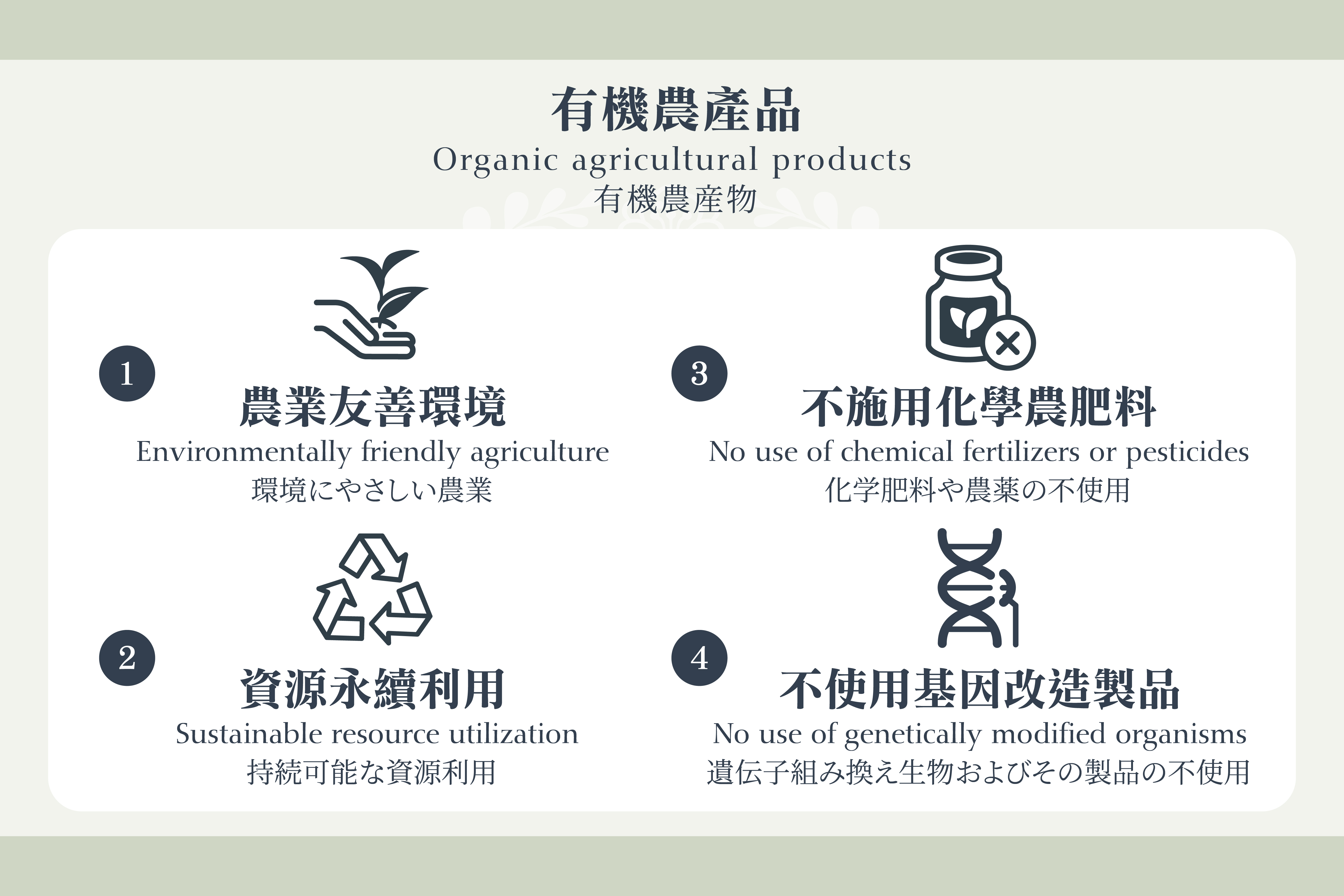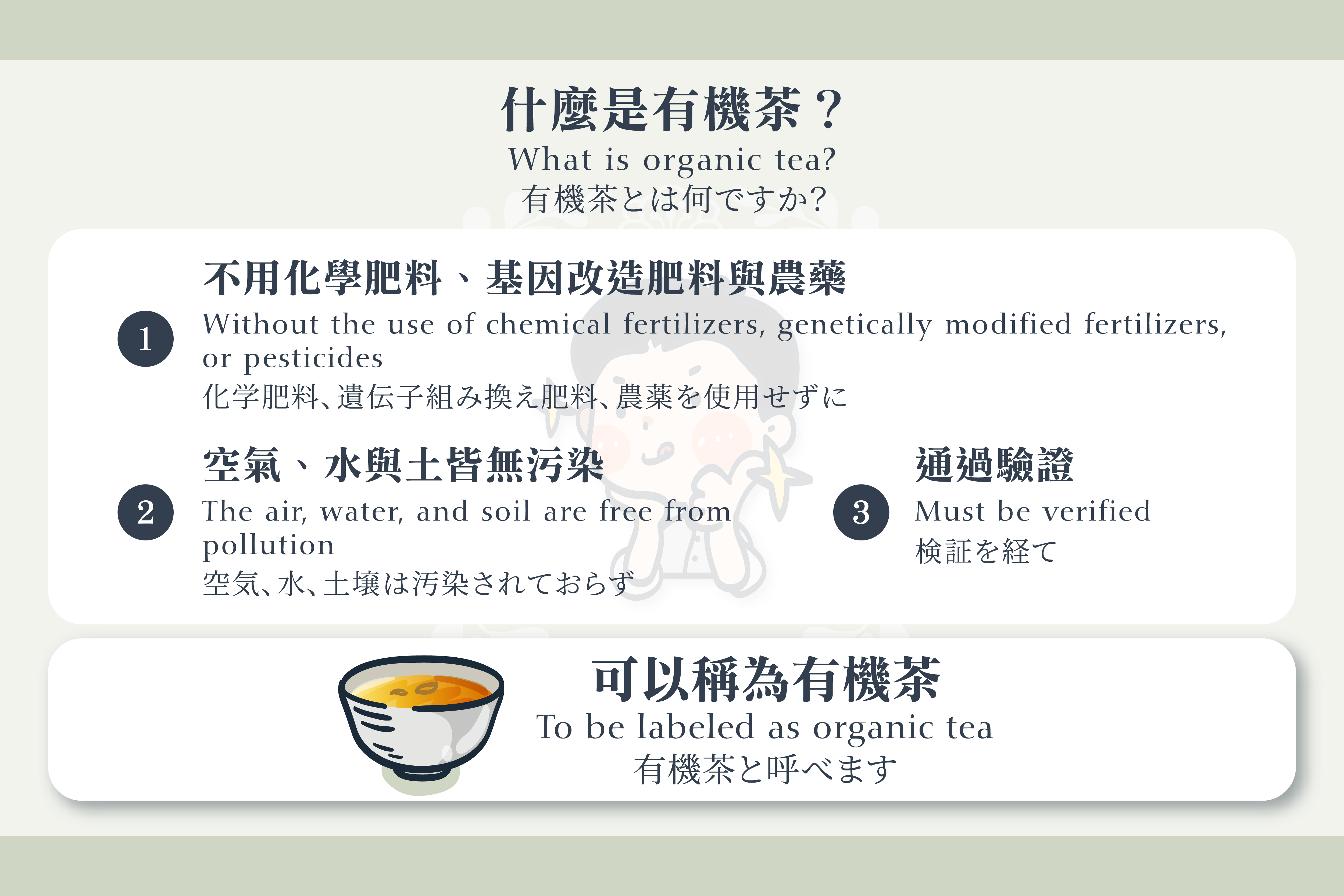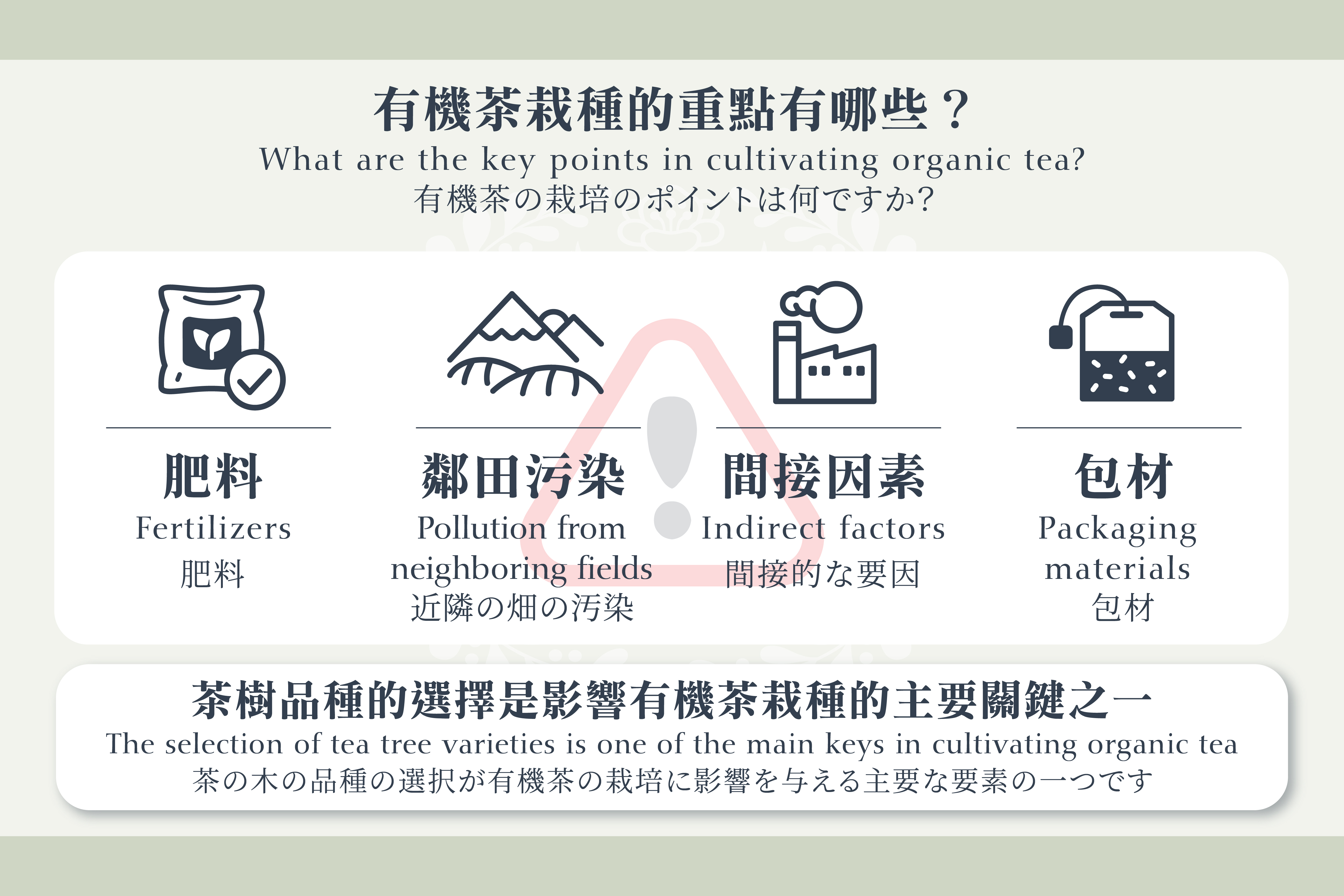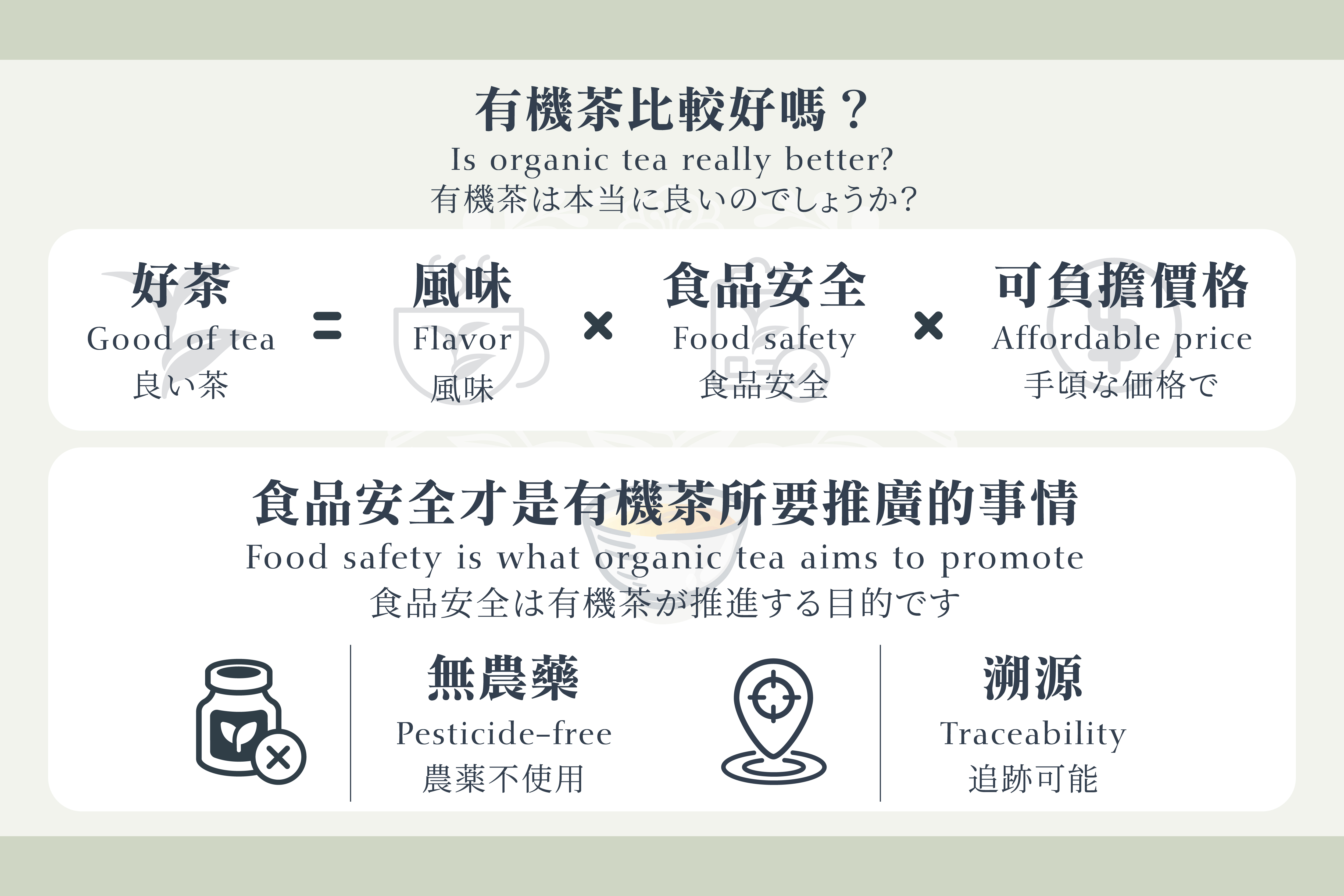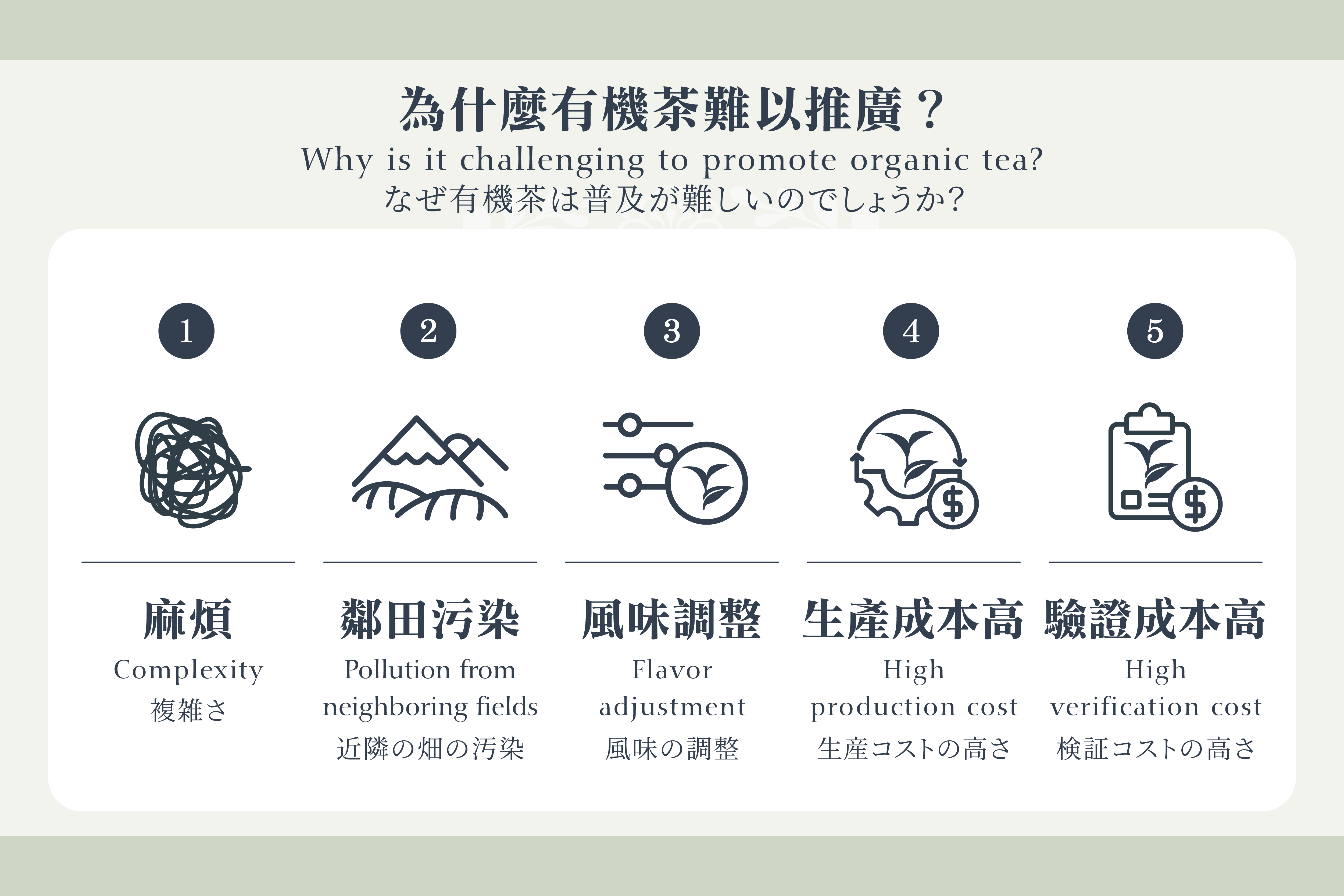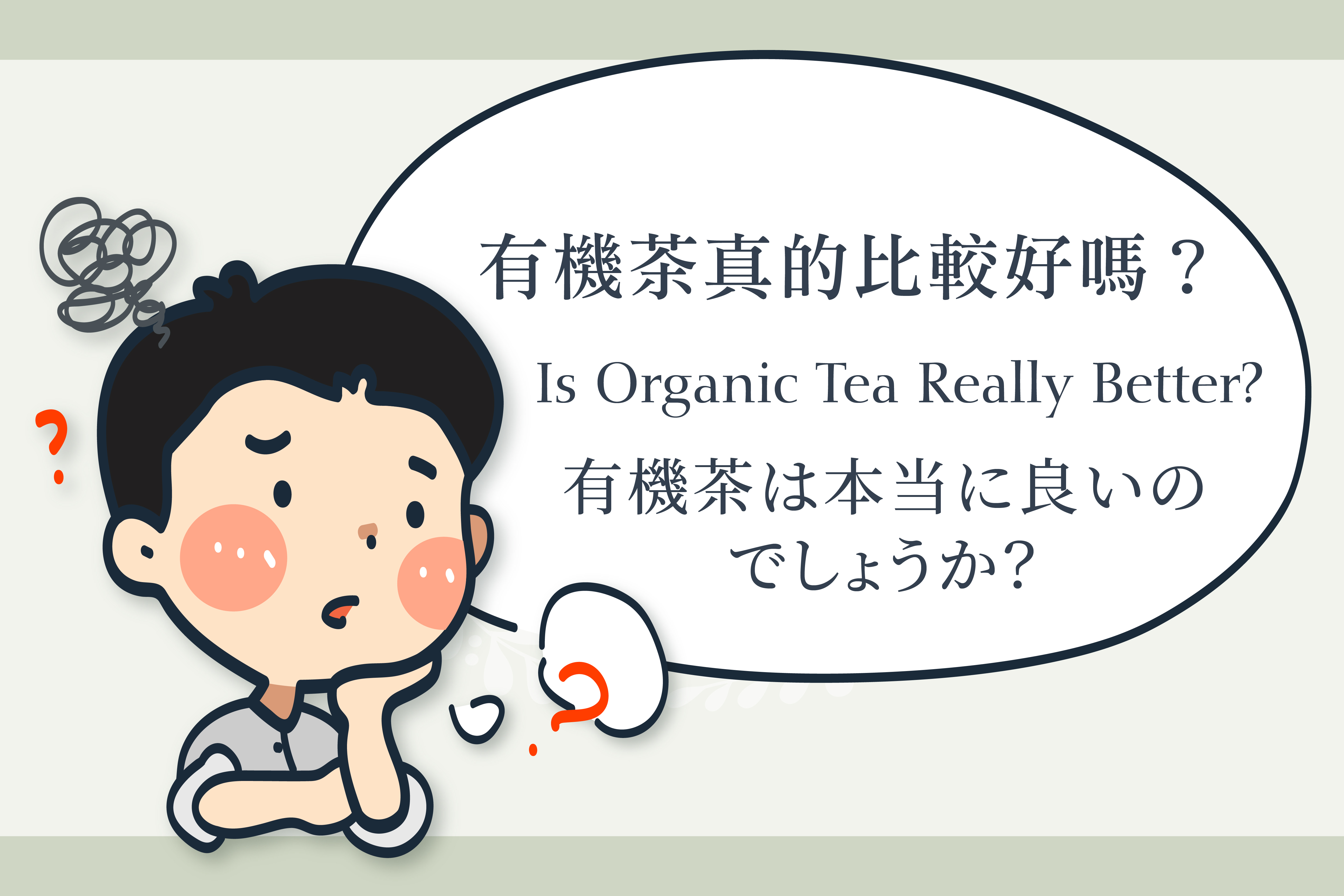大家好:我是茶迷Andy。
常聽到說“有機茶”比較好,到底是好在哪裡?今天與大家聊聊“有機茶”。
談到有機茶,必須先從“有機農業促進法”的定義開始了解,
1. 為維護水土資源、生態環境、生物多樣性、動物福祉與消費者權益,促進農業友善環境及資源永續利用,特制定本法。
2. 有機農業:指基於生態平衡及養分循環原理,不施用化學肥料及化學農藥,不使用基因改造生物及其產品,進行農作、森林、水產、畜牧等農產品生產之農業。
3. 有機農產品:指農產品生產、加工、分裝及流通過程,符合中央主管機關訂定之驗證基準,並經依本法規定驗證合格。
從以上資料我們可以總結“有機農產品“包含以下關鍵字,農業友善環境、資源永續利用、不施用化學肥料及化學農藥,不使用基因改造生物及其產品。
-什麼是有機茶?
有機茶是指不用化學肥料、基因改造肥料與農藥所栽種而成的茶葉。空氣、水與土皆無污染,並通過驗證,才可以稱為有機茶。
-有機茶栽種的重點有哪些?
以臺灣茶為例,先不討論茶園環境,茶樹品種的選擇是影響有機茶栽種的主要關鍵之一,選用抗病蟲害能力佳的茶樹進行栽培,如金萱茶就是好選擇。如果使用青心烏龍為栽種品種,會相當辛苦,因為青心烏龍本身抗病蟲害能力不好。當茶樹種植後,先不要急著收成,等待茶樹擁有健康的狀態時,再進行採摘。當茶樹身體健康,自然能夠抵抗病蟲害。
-有機茶還有哪些需要注意?
1. 肥料:肥料必須經過有機驗證,如豆粕不可以使用基因改造大豆。
2. 鄰田污染:有機茶園鄰近農作物非有機管理,當噴藥時造成有機茶園污染。
3. 間接因素:如交通工具、茶園管理設備所產生的廢氣是否會影響茶園,是值得我們思考的問題。
4. 包材:即便茶葉符合有機規範,包材的安全性不足,也會影響“有機”的效果,如不安全的鋁箔袋塑膠層溶出有毒物質接觸到茶葉就是個例子。
-有機茶比較好嗎?
對消費者來說,茶的“好”分成兩個範圍,食品安全與風味,風味好壞因人而異,食品安全才是有機茶所要推廣的事情。茶葉食品安全,除了茶本身無任何農藥,也必須能夠進行“溯源“,這才是真正的“有機茶”。“溯源“是指當發生食品安全危險時,能夠從種植、生產、銷售找到原因,並將產品進行回收。
-為什麼有機茶難以推廣?
1. 麻煩:所有事情需留下紀錄,農業資材必須精心挑選,製茶工廠需經過有機加工驗證。
2. 鄰田污染:臺灣各種農田緊密,可能鄰近的農田使用農藥時,藉由空氣飄到茶園造成污染,這是有機茶最常見的問題。農藥殘留檢驗數值通常當很低,低於0.05ppm,不容易發現。
3. 風味調整:不是所有土地都適合茶生長,或是土壤成分能產出好的茶風味,當進行有機栽種時,就不可以使用非有機驗證肥料進行茶風味調整。簡單來說,茶難以透過肥料使用來使茶風味改變。就好像練健身的人,只能夠吃有機認證水煮雞胸肉,不可以吃蛋白粉或是其他高濃縮營養補充品。
4. 生產成本高:有機茶園管理資材成本高,必須付出較多人力成本。
5. 驗證成本高:有機驗證費用高昂,不同國家的有機驗證不一定流通。
總結以上內容,不管茶是否“有機”,當茶葉符合食品安全規範,茶風味自己喜歡,茶價錢能負擔,茶故事自己喜歡聽,就是最好的茶。
今天就與大家分享到這裡。
我們下次見。
購物網站:https://shopping.yoshantea.com.tw/
#有機茶 #茶迷 #食品安全 #茶文化 #風味探索 #環保 #可持續發展 #綠色生活 #茶葉種植 #茶葉故事 #茶道 #健康生活 #茶之旅 #茶園管理 #茶的魅力 #品味生活 #環境友善 #無農藥茶 #台灣茶 #有機農業 #茶葉知識 #有機飲食 #茶葉品味 #有機生活 #遊山茶訪 #yoshantea #臺灣茶 #台灣茶 #凍頂茶 #烏龍茶 #觀光工廠 #安全茶 #安心茶 #FSSC22000
